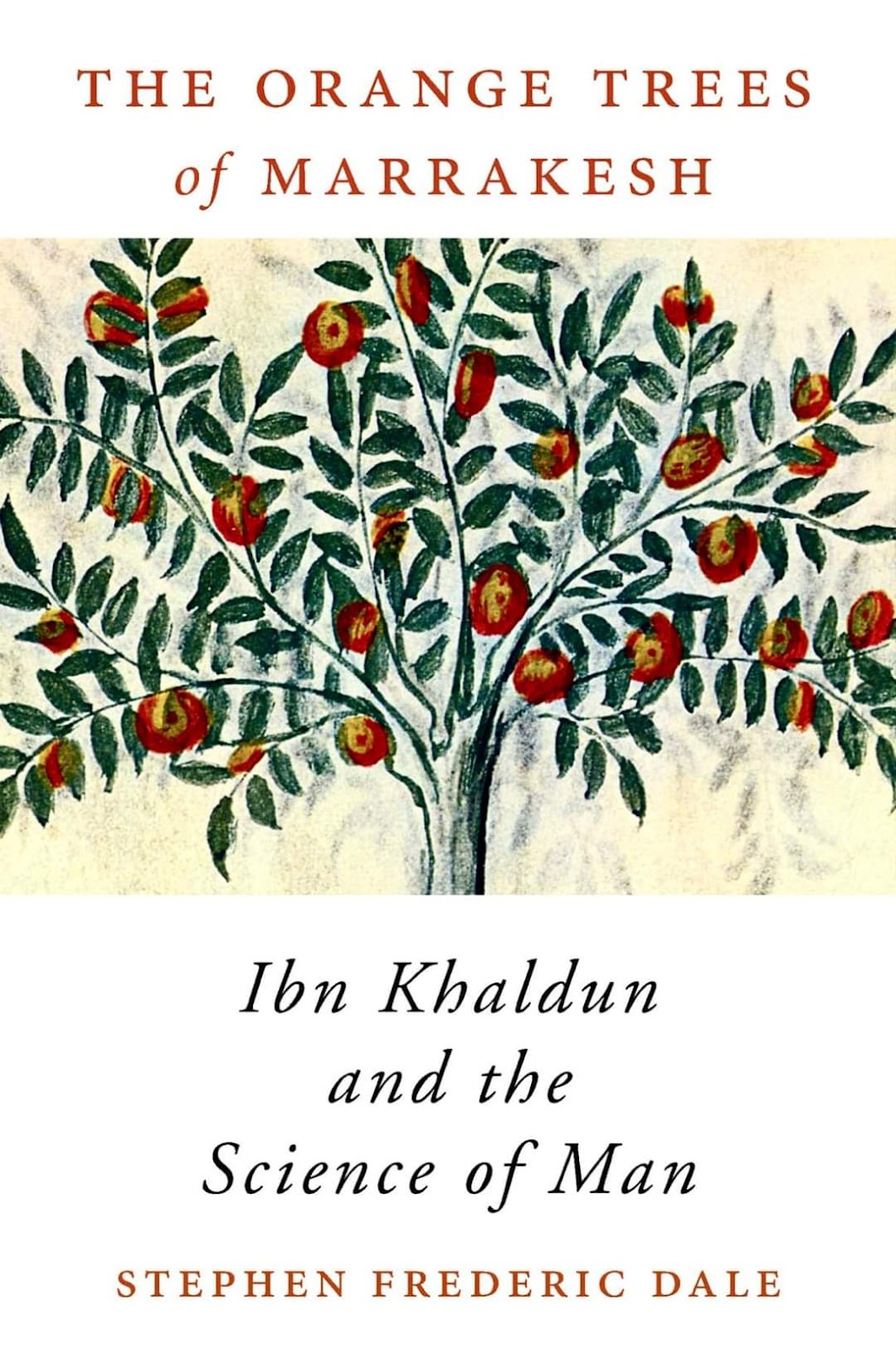The Orange Trees of Marrakesh: Ibn Khaldun and the Science of Man by Stephen F. Dale
The Orange Trees of Marrakesh: Ibn Khaldun and the Science of Man by Stephen F. Dale
In "The Orange Trees of Marrakesh," Stephen F. Dale delves into the pioneering work of Ibn Khaldun, an Arab Muslim scholar born in 1332 in Tunis, and a descendant of Andalusian scholars and officials from Seville. Ibn Khaldun's seminal work, "Muqaddimah," marks a monumental advancement in the evaluation of historical evidence and the understanding of social dynamics.
Ibn Khaldun developed a method of historical analysis that was heavily influenced by Aristotelian concepts of nature and causation. He applied these principles to construct a dialectical model explaining the cyclical rise and fall of North African dynasties. This innovative approach allowed him to identify the underlying causes of historical events, moving beyond mere narrative to uncover the structural forces at play. His work, "Muqaddimah," stands as the first example of structural history and historical sociology, predating similar methodologies developed during the European Enlightenment by four centuries.
Dale portrays Ibn Khaldun not only as a brilliant historian but also as a cultured urban intellectual and a professional religious judge. Ibn Khaldun challenged his contemporaries to abandon the traditional narrative-based historiography and to adopt a more rigorous, philosophically informed approach to understanding social organizations and historical processes. His insistence on this method underscores his demand for a higher standard of historical research among Muslim historians.
In "The Orange Trees of Marrakesh," Ibn Khaldun is depicted as the premodern world's leading historical scholar, whose methodologies laid the groundwork for modern historiography and social science. Dale situates Ibn Khaldun within an intellectual tradition that includes the likes of Plato, Aristotle, and Galen, as well as Greco-Muslim philosophers such as al-Farabi, Avicenna, and Averroes. This lineage extends to Enlightenment thinkers like Montesquieu, Hume, Adam Smith, and Durkheim, highlighting Ibn Khaldun's profound and lasting impact on the field of historical and social sciences.
Overall, Stephen F. Dale's exploration of Ibn Khaldun's contributions in "The Orange Trees of Marrakesh" not only illuminates the scholar's remarkable achievements but also positions him as a critical figure in the intellectual history of the premodern world, whose work continues to resonate in contemporary historiographical and sociological thought.
#IbnKhaldun #Muqaddimah #HistoricalAnalysis #SocialSciences #Historiography #PremodernScholar #IntellectualHistory #AristotelianInfluence #NorthAfricanHistory #StephenFDale


